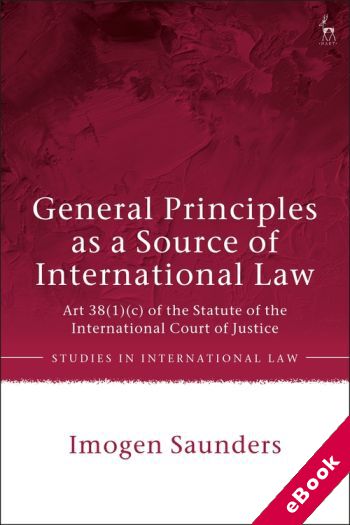We are now closed for the Christmas and New Year period, returning on Monday 5th January 2026. Orders placed during this time will be processed upon our return on 5th January.

The device(s) you use to access the eBook content must be authorized with an Adobe ID before you download the product otherwise it will fail to register correctly.
For further information see https://www.wildy.com/ebook-formats
Once the order is confirmed an automated e-mail will be sent to you to allow you to download the eBook.
All eBooks are supplied firm sale and cannot be returned. If you believe there is a fault with your eBook then contact us on ebooks@wildy.com and we will help in resolving the issue. This does not affect your statutory rights.
This book provides a comprehensive analysis of an often neglected, misunderstood and maligned source of international law. Article 38(1)(c) of the Statute of the International Court of Justice sets out that the Court will apply the 'general principles of law recognized by civilized nations'. This source is variously lauded and criticised: held up as a panacea to all international law woes or denied even normative validity. The contrasting views and treatments of General Principles stem from a lack of a model of the source itself. This book provides that model, offering a new and rigorous understanding of Article 38(1)(c) that will be of immense value to scholars and practitioners of international law alike.
At the heart of the book is a new tetrahedral framework of analysis - looking to function, type, methodology and jurisprudential legitimacy. Adopting an historical approach, the book traces the development of the source from 1875 to 2019, encompassing jurisprudence of the Permanent Court of International Justice and the International Court of Justice as well as cases from international criminal tribunals, the International Criminal Court and the World Trade Organisation. The book argues for precision in identifying cases that actually apply General Principles, and builds upon these 'proper use' cases to advance a comprehensive model of General Principles, advocating for a global approach to the methodology of the source.